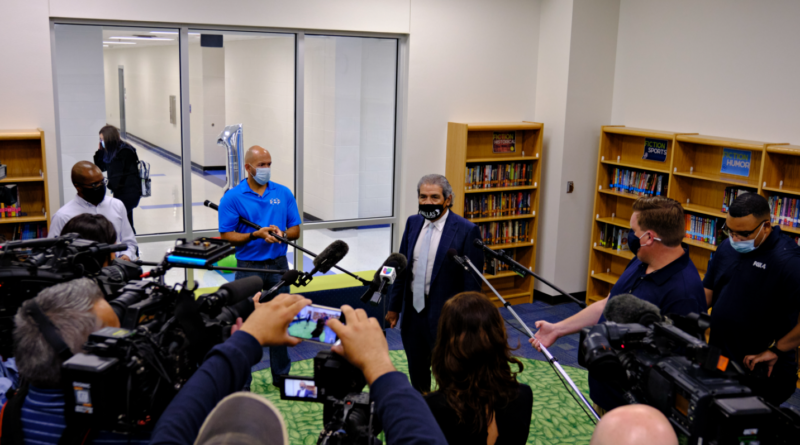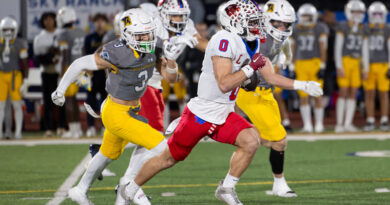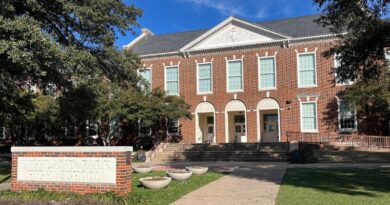The Search Begins
Dallas ISD has a lot to offer prospective superintendent candidates, but the search will still be arduous
When Dr. Michael Hinojosa announced he would be resigning from his post as Dallas ISD superintendent last week, the district became one of thousands now hunting for the next person to take the top spot.
Finding a superintendent for a large urban school district is always a big task — there are a lot of moving parts to running a school district of any size, and even more in a large district with external factors that impact the trajectory of a district.
But experts warn that this year, finding a superintendent will be an even more arduous task.
The pandemic, coupled with a rancorous political climate, has added about 3,000 more superintendent vacancies than normal years.
Almost a quarter of superintendents nationally have quit in the past year, American Association of School Administrators director Dan Domenech told The Hechinger Report.
The AASA says typical turnover is somewhere around 15%.
A summer survey by the National Superintendents Roundtable found that 63% of the 400 superintendents surveyed considered quitting last year.
“I think it’s going to be very difficult and very challenging. I think the pools — the groups of qualified applicants — is going to be very shallow.”
Mike Moses
“A comment from the president of a major search firm that helps school boards hire new superintendents indicated in the spring of 2021 that school districts would need to find 4,000-5,000 new district leaders for the school year beginning in the fall,” the NSR report of that survey added.
In North Texas alone, so far eight superintendents (Hinojosa, Kent Scribner – Fort Worth ISD, Jeannie Stone – Richardson ISD, Kevin Rogers – Lewisville ISD, Ryder Warren – Northwest ISD, D’Andre Weaver – DeSoto ISD, David Vroonland – Mesquite ISD, Steve Chapman – Hurst-Euless-Bedford ISD) have resigned or announced their intent to resign this school year.
And that exodus certainly jibes with what former Texas Education Commissioner (and former Dallas ISD superintendent) Mike Moses is seeing.
Moses said that issues around masking, vaccinations, pandemic response, critical race theory, and more are causing superintendents to rethink their options.
“These are all high-stakes issues and the job is already daunting,” he said. “Urban education is already fraught with learning challenges, financial challenges, facility challenges, labor challenges — the list goes on and on. Then you throw in all these others on top of it.
“I think a lot of, a lot of talented people would probably say, ‘I’m either going to retire or I’m not going to look for anything right now because I know what I’ve got. And if I go somewhere else, I don’t know what I’ll be facing.’”
(Read: Dallas ISD Superintendent Michael Hinojosa To Resign)
That reluctance to move to a new post — combined with the sheer volume of openings — will make it more difficult to find candidates.
In fact, he says that while 10 years ago you might see as many as 60 candidates apply for an open superintendent position, the number will be much, much lower this time around.
“I think it’s going to be very difficult and very challenging,” Moses said. “I think the pools — the groups of qualified applicants — is going to be very shallow.”
That small pool of highly qualified candidates will also present another problem, he said.
“The market will place a value on someone that is qualified and what that is worth, and I think that it may result in some sticker shock for some school districts,” he said.
And while some districts may have identified internal candidates that could step up if picked for the top job, Moses cautioned that those candidates are also going to be really attractive to districts also shopping for a superintendent.
“If you have someone on your staff that’s talented and you might want to promote, and you don’t, you might have to be prepared to see them go, too,” he said.
Dallas ISD school board trustee Dustin Marshall says he’s “cautiously optimistic” that the district will be attractive to top candidates, but he’s also — like Moses — realistic.
“I do think there are some headwinds — one is that there’s a lot of vacancies and there’s a limited number of high-performing candidates and a lot of districts are looking,” he said. “And the other big headwind is just the political climate right now, I think, is forcing a lot of talented high-quality superintendents to want to exit the game or retire early if they can afford to do so.”
“In our particular case, I’m pretty cautiously optimistic just because I think Dallas ISD has come to be recognized as one of the fastest improving and innovative districts, really, in the country.”
Dustin Marshall
But all that said, both Marshall and Moses said Dallas ISD does have a lot to offer the next superintendent.
“In our particular case, I’m pretty cautiously optimistic just because I think Dallas ISD has come to be recognized as one of the fastest improving and innovative districts, really, in the country,” Marshall said. “We’ve got a high functioning board that I think a lot of superintendents would like to work for. I think we’re going to have a much easier time attracting one of those few high-performing candidates.”
“I just can’t say enough about how much and how proud I am of the work they’ve done to improve facilities,” Moses said. “Dr. Hinojosa and the board have done tremendous work on that and they have created a great menu of opportunities for students in a lot of different areas.”
Marshall said once Hinojosa tenders his resignation (likely at the Jan. 27 board meeting), trustees will begin working on finding his replacement.
“We’ve laid out a process for what the search will look like — kind of a five-phase approach,” he explained. “One of those phases is intended to focus on community engagement and getting thoughts from the community on what exactly the profile of the ideal candidate should look like.
“So some folks have already started to reach out in that regard, but I think we’ll hear from a lot more people once we structure that community input period.”
See our extended conversations with Mike Moses and Dustin Marshall next week.









